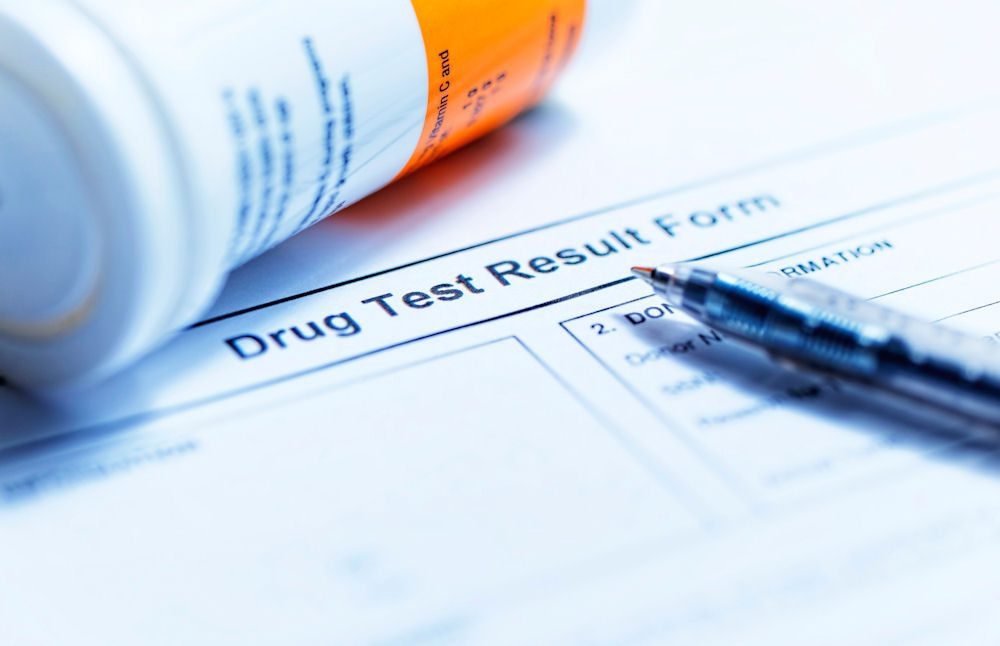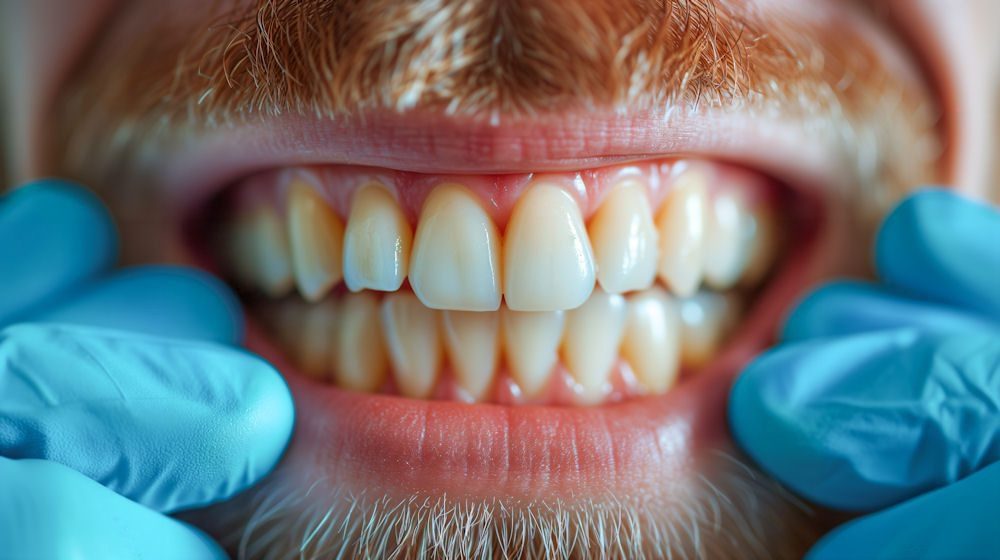The Health-Related Consequences of Substance Abuse


Not only do the drugs cause health issues, injecting drugs and sharing needles can cause:
- Skin infections
- Infections in the heart
- HIV
- Hepatitis C
If you or someone you love is struggling with addiction, it is essential to know the health consequences of drug abuse.
Jump to Section
How Alcohol Affects the Body
The effects of alcohol on the body begin with the first drink. People know the short-term effects of alcohol, from the warm feeling of a buzz to headaches the following day. Since the short-term effects are minor, many people don’t give them much thought.
People think an occasional drink is harmless. While it is less harmful than drinking in moderation, long-term alcohol abuse can lead to various health consequences especially when with other substances such as a mix of dayquil and alcohol. Furthermore, heavy drinkers and binge drinkers increase the consequences of substance abuse. Seek alcohol addiction treatment before the problem goes out of hand.
Pancreas and Sugar Levels
Alcohol causes inflammation of the pancreas or pancreatitis. It causes the pancreas to release digestive enzymes leading to abdominal pain. Pancreatitis causes serious health issues and can be a long-term consequence of drug abuse.
The pancreas also regulates insulin use and how the body responds to glucose. Pancreatitis can reduce insulin production and cause hyperglycemia or high blood sugar. When the body can’t balance and manage blood sugar levels, diabetes is one of the consequences of substance abuse.
Inflammatory Damage
The liver breaks down and removes toxins from the body. However, alcohol causes the liver to work harder. Long-term alcohol abuse can lead to liver disease and chronic liver inflammation.
Liver disease from alcohol may be life-threatening because it causes toxin build-up in the body. At the same time, chronic liver inflammation causes scarring or cirrhosis. This scarring can cause permanent damage.
The Central Nervous System
The central nervous system or CNS is the first body system to show the consequences of alcohol use. For example, slurred speech is an obvious sign of intoxication. Slurring happens because alcohol affects communication between the brain and body.
Alcohol also interferes with balance and reaction time. This is the main reason never to drink and drive. Drinking can also affect the ability to:
- Create long-term memories
- Think clearly
- Make rational decisions
Furthermore, the long-term effects on the CNS include frontal lobe damage. This affects impulse control, judgment, and short-term memory. Chronic heavy drinkers may experience permanent brain damage such as Wernicke-Kprsakoff syndrome.
Digestive System
Short-term, people may overlook the consequences of substance abuse and alcohol on their digestive system. That is because symptoms only appear once the damage is done. Continuing to drink will worsen the symptoms.
Alcohol causes damage to the digestive tract tissue. As a result, the intestines can’t digest food and absorb needed vitamins and nutrients. This can lead to malnutrition.
Chronic heavy drinkers often experience:
- Gas
- Bloating
- Fullness in abdomen
- Painful stools or diarrhea
- Ulcers
- Hemorrhoids
Ulcers cause internal bleeding and may be fatal without proper treatment.
How Does Cocaine Affect the Body
Cocaine use, especially long-term, can cause severe and sometimes irreversible health issues. Some health issues from cocaine use include:
- Malnourishment
- Pneumonia
- Bowel decay
- Skin infections
- Seizures
- Heart attack or stroke
- Breathing problems
- High blood pressure
It is crucial to seek early treatment for cocaine addiction to stop or even reverse the consequences of drug abuse.
The Brain
Long-term cocaine use can impact the structure of the brain. It actually mimics the natural aging process typically seen in advanced aging. Cocaine use can cause the loss of grey matter tissue leading to mental changes such as confusion and memory loss.
Blood Vessel Damage
Unlike the symptoms of brain damage, the damage cocaine does to blood vessels in vital organs can go unnoticed. The system of blood vessels in the body carries nutrients to the cells while removing toxins.
Cocaine can interrupt blood flow, causing the heart to work harder. As a result, the blood can begin pooling in the body and lead to clots. Furthermore, the lack of nutrients in the cells can lead to cell death.
Gastrointestinal Issues
The gastrointestinal tract pulls nutrients from food and gets rid of what it doesn’t need. This body system is highly dependant on blood flow. Since cocaine use affects the cardiovascular system, it also affects the gastrointestinal tract.
When the digestive system doesn’t have the blood flow to stay healthy, the organs begin breaking down. This can lead to life-threatening blockages and gangrene requiring emergency surgery.
How Does Heroin Affect the Body?
Heroin is highly addictive and causes severe damage to the body—people who struggle with a heroin addiction risk brain damage, chronic medical issues, and even death.
People can snort, smoke, or inject heroin. Furthermore, it only takes one dose to cause severe consequences and addiction. While the rush from heroin is pleasurable, it can lead to severe health consequences.
The Heart, Heroin and the Consequences of Drug Abuse


However, heroin use increases a person’s risk of a heart attack by double. That’s because heroin contains toxins and contaminants that can block blood vessels.
Other consequences of substance abuse and heroin on the heart include:
- Heroin can cause issues with the heart contracting. This increases when a person combines heroin with benzodiazepines such as Xanax. This combination can lead to heart failure, especially in those with existing cardiac problems.
- Bradycardia or slowed heart rate is common with heroin abuse. It causes issues with physical activity since the heart rate can’t increase as needed.
- Heroin can also lead to the dilation of blood vessels. As a result, the blood pressure can drop suddenly.
- Infectious endocarditis can be fatal as it attacks the structures of the heart. This disease is typically found in those who inject heroin. If a person does survive, they often suffer from chronic cardiac disease.
The Brain and Heroin Use
Heroin changes the way a person perceives pain. It causes a flood of dopamine which increases the sense of well-being and pleasure. The high levels of dopamine are responsible for heroin’s high.
Long-term use of heroin begins to affect the prefrontal cortex and temporal lobe in the brain. These areas are responsible for decision-making, self-control, memory, and critical thinking. As a result, the damage heroin does to the brain affects:
- The ability to control behavior
- Processing emotions
- Memory
- Making decisions
- Problem-solving
- Planning ahead
It is crucial to understand that brain damage from heroin doesn’t take years. This damage happens quickly and can be challenging to reverse. Seek heroin addiction treatment as soon as possible.
How Methamphetamines Affects the Body
Methamphetamine or meth is a highly addictive and dangerous drug. Because it is a central nervous system stimulant, it goes straight to the brain and triggers a flood of dopamine.
However, this flood of dopamine is much higher than a natural dopamine release. The brain remembers the pleasure from the dopamine release and often craves it after just one use. But, long-term use of meth is dangerous and can possibly cause drug induced psychosis
The Brain, Meth and the Consequences of Drug Abuse
Meth abuse can lead to structural changes in the brain. These structures are responsible for:
- Decision-making
- Suppressing useless behaviors
- Verbal learning
- Memory
- Emotions
The changes in the brain from long-term abuse can also cause mental health concerns. People may experience:
- Anxiety
- Confusion
- Violent behaviors
- Insomnia
- Mood disturbances
- Paranoia
- Hallucinations
- Delusions
The Heart and Meth Abuse
Meth use can lead to cardiovascular issues such as rapid heart rate, irregular heartbeat, increased blood pressure. Chronic long-term meth abuse causes the heart to enlarge, making it difficult to pump blood.
Meth abuse can exacerbate underlying cardiac disorders such as cardiomyopathy. Cardiac disorders increase the risk of heart attacks and sudden cardiac death.
Dental Issues and the Consequences of Substance Abuse
Abusing long-term meth causes severe dental issues known as “meth mouth.” It results from poor dental hygiene and poor nutrition due to drug use.
Furthermore, meth use can cause dry mouth resulting in tooth decay and gum disease. People on meth typically grind and clench their teeth, causing damage to the enamel.
The Lungs and Consequences of Meth Abuse
When people smoke or inhale meth, it can severely affect the lungs. Because many people prefer to smoke meth, it often causes respiratory issues such as meth lung.
Meth lung is drug-induced pneumonia. Pneumonia is an infection that irritates the air sacs inside the lungs, causing cough, fever, and trouble breathing. It typically occurs because meth contains various cutting agents.
Pulmonary hypertension, a type of high blood pressure, impacts the lungs and the right side of the heart. Pulmonary arterial hypertension is meth-induced. It happens when the lung’s blood vessels narrow, are blocked or destroyed.
Fentanyl and the Consequences of Drug Abuse
Fentanyl is a synthetic opioid. Like morphine, fentanyl is prescribed to treat pain. However, according to the DEA, fentanyl is 80 to 100 times stronger than morphine. For this reason, it is often unknowingly mixed with heroin which can lead to a fatal overdose.
The Brain and the Consequences of Fentanyl Abuse
Fentanyl affects the brain just like other opioids. It causes a rush of dopamine resulting in pleasure. But, unlike other opioids, fentanyl causes a more intense level of pleasure. Unfortunately, long-term use of fentanyl can deplete natural dopamine, causing an inability to be happy.
The Heart and Fentanyl Abuse
Fentanyl has many dangerous side effects, especially with illicit use. One dangerous consequence of fentanyl use is bradycardia. Fentanyl is a depressant, meaning it slows down body systems such as the cardiac and respiratory systems.
Long-term use can interrupt the natural heart rhythm, causing long Q-T syndrome. This condition can become permanent, causing a lack of oxygen and heart damage.
Are the Consequences of Substance Abuse Reversible?
The first way to reverse or minimize the consequences of substance abuse is to stop using drugs or alcohol. But, the damage done to the body during active addiction requires more than just quitting drugs or alcohol.
When people use drugs or alcohol long-term, they often suffer from years of malnutrition. This malnutrition can come from a lack of eating healthy or from the consequences of drug abuse. Either way, with a strict nutrition plan and healthy exercise, most effects from malnutrition are reversible.
However, neurological conditions from abusing alcohol, such as Wernicke-Korsakoff, are often irreversible. Severe cases of this condition have a mortality rate of 10 to 15 percent.
Overcoming addiction and stopping the consequences of substance abuse isn’t easy. For this reason, seeking substance abuse treatment can offer the support to recover successfully.
Overcome Addiction at Northern Illinois Recovery Center
Have you tried to stop using drugs or alcohol, but once withdrawal symptoms begin, you use again? Most people can’t overcome addiction without treatment. At our drug rehab treatment centers in illinois, we support your recovery journey from your first step into detox through your aftercare program.
If you or someone you love is ready for a new life, our individualized treatment plan can get you there. Give us a call today to find out more.


Licensed Physician and Surgeon
Dr. Beth Dunlap, a board-certified addiction medicine and family medicine physician, and is the medical director at Northern Illinois Recovery Center. She is responsible for overseeing all the integrated medical services at both campuses. Beth completed medical school, residency, and fellowship at Northwestern University, where she continues to serve on the faculty as a member of the Department of Family and Community Medicine. She has extensive experience in addiction medicine at all levels of care, and her clinical interests include integrated primary care and addiction medicine, harm reduction, and medication-assisted treatment.













